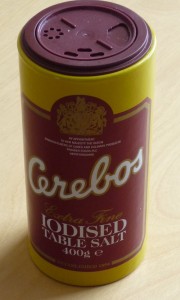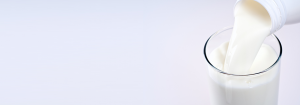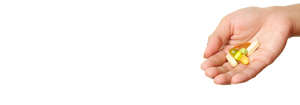Information on dietary sources of iodine
Download our iodine food fact sheet
Full facts on dietary sources of iodine can be found in our diet sheet.
This fact sheet is suitable for adults only (including pregnant women and breastfeeding women).
The fact sheet has been written by Dr Sarah Bath and Professor Margaret Rayman and can be downloaded from the British Dietetic Association
How much iodine do you need?
The World Health Organisation (WHO 2007) recommendations are in the table.
| Population group | World Health Organisation
Recommended Nutrient Intake (RNI) (µg/day) |
| Children 0-5 years | 90 |
| Children 6-12 years | 120 |
| Adults >12 years | 150 |
| Pregnancy | 250 |
| Lactation | 250 |
Iodised salt in the UK
Salt sold in the UK does not routinely have iodine added to it (known as iodised salt). A survey in 2009 revealed that approximately just 20% of supermarket shoppers are able to access iodised salt.
As there are recommendations to reduce salt intake in the UK, iodised table salt should not be used as a way of increasing iodine intake. Iodised salt is unlikely to contribute to iodine status in the UK.
Main dietary sources of iodine
Milk and dairy products are the main sources of iodine in the UK diet. However, this varies according to farming practice. Winter milk has a higher iodine concentration than summer milk. Most milk-alternative drinks (e.g. soya/oat) are not fortified with iodine and have a very low iodine concentration. It is therefore important to check the label of the drink to find out whether iodine is listed as an ingredient (the label may also state the amount of iodine per 100 ml in the panel on Nutritional Information).
Other sources include fish (white fish, oily fish and shellfish) and eggs. A table of iodine content of various foods can be found in our factsheet
Iodine supplements
It is very important that kelp and seaweed supplements are not taken as an iodine source.
Many multivitamin and mineral supplements contain iodine. Not all supplements for pregnant and lactating women contain iodine.
More information on iodine in supplements can be found on our supplement page



